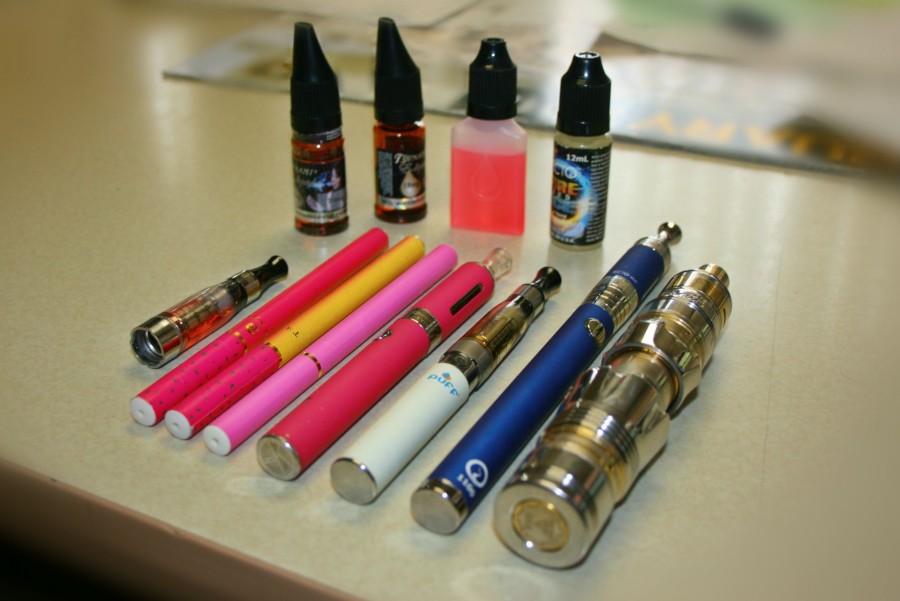Electronic cigarettes find their way into schools
IMAGE / Amellia Vasquez-Collins
Assistant Principal Matt Moore has confiscated many hookah pens and e-cigarettes since November.
A word that you are much more likely to come across today than you would have two years ago was added last year to the Oxford Dictionary.
The word is “vape”—referring to, or to the use of an electronic cigarette, vaporizer, hookah pen, or similar device.
The use of these electronic smoking devices has increased in the past few years, and as a result, “vape” was chosen as Oxford’s Word of the Year.
Vaping has quickly became a trend followed by teenagers, including students at Kearsley.
“A lot of it has been the younger kids, like freshmen and sophomores,”Assistant Principal Matt Moore said.
Moore said the school’s policy regarding vaping in school is similar to smoking tobacco in school.
“If you’re caught with it on your person, you get suspended,” Moore said. “If you’re caught using it, it is considered a cigarette.”
Moore said there have been students caught using hookah pens and electronic cigarettes inside of classrooms, bathrooms, hallways during passing, and even outside on the bleachers during physical education classes.
And Moore said the problem has been growing.
“This year has been the worst,” he said.
Over the summer, the Board of Education adopted a policy specifically for the use of electronic cigarettes and similar devices on school property and in school-owned vehicles.
In previous years, the Code of Conduct did not include anything about electronic cigarettes, but because of increased prevalence, it was added to the code.
Vaping has increased in popularity among all age groups.
According to the Centers for Disease Control and Prevention, there are no long-term studies to determine the health effects of vaping, but nicotine is known to be addictive and harmful to adolescent brain development, though not all vapor juices contain nicotine.
A sophomore, The Eclipse will call Bobby, said he knows many people that vape.
Because Bobby is a minor, The Eclipse will not disclose his real name.
Bobby knows “about 50” people that vape regularly.
Bobby has been using his vape for about four months. He said vapor is a good alternative to tobacco, and he believes it should be allowed in schools.
Senior Jake Miller said he vapes, too.
“I know at least 10 people that use one regularly,” Miller said. “I use mine a few times a week.”
Miller agreed with Bobby. Miller claimed, “It doesn’t hurt anyone around you because it’s just vapor.”
Mrs. Amy Graham, health teacher, said she knows about dangerous effects from using electronic cigarettes with nicotine.
“There has been an increase in the number of people who show up to the emergency room with nicotine overdoses,” Graham said.
Graham also said it is possible for nicotine to not be completely vaporized, which is also dangerous to human health.
The same problems that are caused by the nicotine in cigarettes are also present from vaping nicotine, such as pneumonia, heart attacks, strokes due to blood clotting, and accelerated heart rate.
Though there may be harmful effects to vaping with nicotine, research from the journal Addiction has proven that electronic cigarette users are about 60 percent more likely to quit cigarettes than if they were to quit cold turkey.
Researchers also surveyed 5,863 smokers between 2009 and 2014 and found that of those that switched to vapor, 20 percent said they quit smoking with the help of these devices.

Class: Senior
Hobbies: Kayaking, Walking, Biking, Being outdoors and with friends.
Athletics: Cross country
Future Plans: U-M Flint, Western Michigan...











